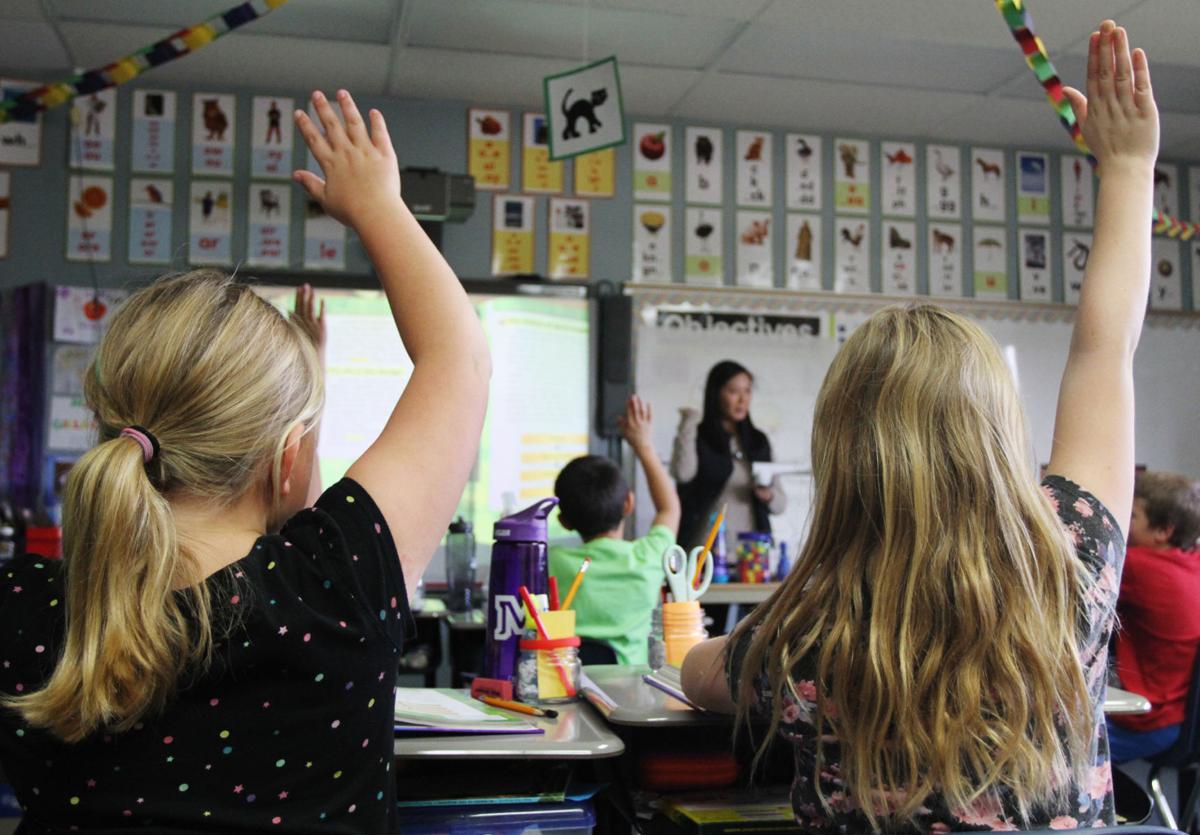PHOENIX — Arizona voters might get a chance to vote on whether the top 4% of wage earners in the state should pay more to support education.
Petitions filed Thursday would add a 3.5% surcharge on taxes on income above more than $250,000 a year for individuals and $500,000 for married couples filing jointly.
The measure, if it makes the ballot and is approved, would raise about $940 million for public education.
Of the 435,699 signatures backers said they submitted, 237,645 need to be found valid to put the issue on the November ballot.
As crafted, half of the funds would be spent both to hire teachers and classroom support personnel like nurses and counselors, and to increase compensation.
Another 25% would be for classroom aides, school safety officers and transportation.
There’s also 12% for grants for career and technical education programs, 10% to help mentor new teachers, and 3% to increase funding for the Arizona Teachers Academy that provides free tuition at state universities for those who agree to go into the classroom.
“We’re doing it because Arizona is 48th in the country in per-pupil funding,” said David Lujan, director of the Arizona Center for Economic Progress which helped craft the proposal. “It’s time to finally give our schools the money and the resources they need.”
He said state lawmakers cut funding for schools during the Great Recession.
“And we still aren’t back to those (pre-recession) levels,” Lujan said. “So this will give Arizona public schools the funding to make real change.”
An analysis of K-12 education by legislative budget staffers shows the state was providing $4,163 a year in 2001. That figure is now $5,762.
But that same analysis shows that, when adjusted for inflation, state aid now is actually 4.5% less than in 2001.
Lujan defended putting put the financial burden for improving education on the top wage earners.
“I think particularly during tough economic times like we’re in it makes sense,” he said.
“This will not raise taxes on families that are struggling to put food on the table or struggling small business owners,” Lujan said.
“They will not pay one additional cent in taxes with this.”
As crafted, the surcharge applies only on incomes greater than the cut point.
So an individual earning $400,000 a year would pay taxes at existing rates on the first $250,000, with a surcharge on the $150,000 above that. And the same scheme works for married couples whose tax rates would remain the same for the first $500,000, with the higher rate only on whatever exceeds that amount.
“Those are people who have benefited from recent tax cuts,” Lujan said. “And so we think to make Arizona’s tax code fairer, and to find a good revenue source, that makes sense to do it this way.”
Opposition is being led and financed by the Arizona Chamber of Commerce and Industry. Spokesman Garrick Taylor said the change will harm small businesses.
The reason, Taylor said, is many of these businesses are organized as “S Corporations,” named after Subchapter S of the Internal Revenue Code.
These corporations pay no income taxes, with any earnings, losses, deductions and credits being attributed to their owners — and reported on their individual income tax forms.
Raising the taxes on these business owners, Taylor said, will delay the state’s economic recovery.
“We are depending on small businesses to begin creating jobs again to help us recover from this downturn,” he said.
But Lujan said the foes at the Chamber are not being honest about it.
“This is only on the profit of the small business owners,” Lujan said, not on the total revenues of their operations.
“So if a small business owner is making and taking home more than $500,000 in net profits, that’s most likely not going to be your typical small business,” he said. “The vast majority of small businesses fall way under the threshold of what this is going to impact.”
Taylor said his organization still believes the surcharge will be bad for the economy — and ultimately for education.





